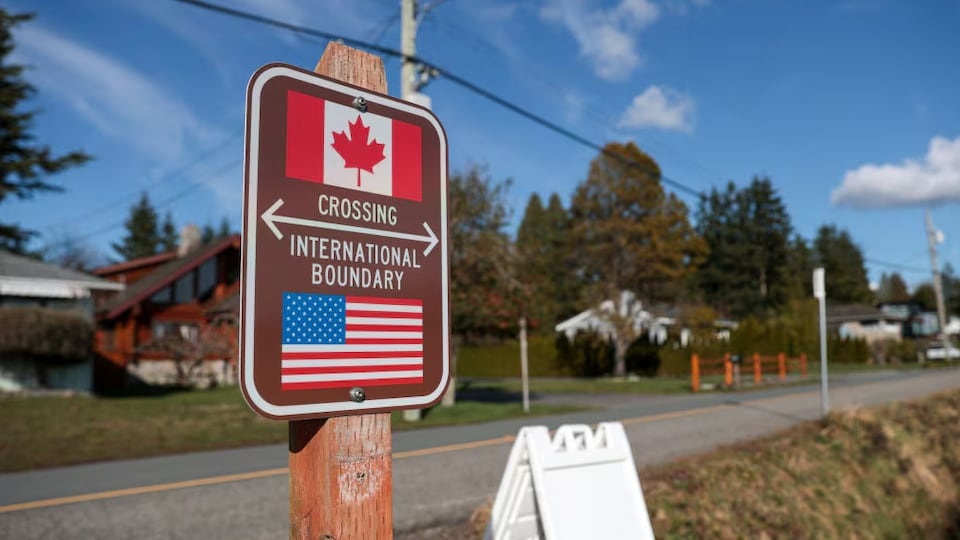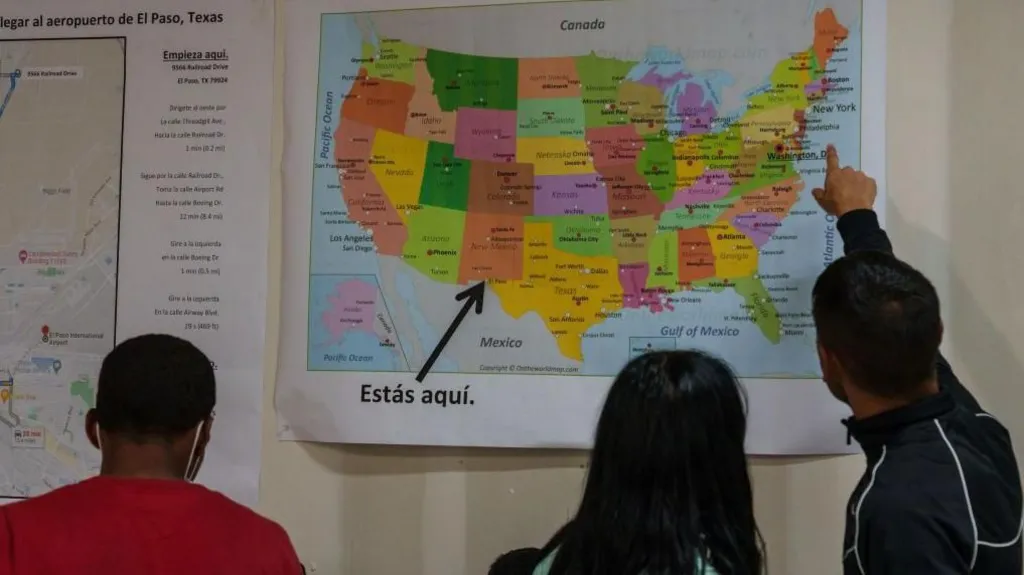"I
know some people are struggling. I know it's tough, but in Quebec, our
capacity to receive more and more people is overwhelmed."
"[Canada
must ensure that] nobody is crossing the line between border crossings
via the forest. Of course, I think it's really important to keep our
humanity, to take care of people who live here, but we can't take more."
Quebec Immigration Minister Jean Francois Roberge
"[Arrivals from Haiti are] somewhat different [because they are French-speaking]."
"That
does not relieve us of the obligation to have a system that follows the
rules and has the resources needed to properly manage asylum seekers."
Bloc Quebecois Leader Yves-Francois Blanchet
"I'm
in favour of legal immigration. When people arrive here in Canada, if
they are asylum seekers, they have to show that they are real asylum
seekers."
"If
someone is a true refugee who [is] truly in danger abroad and they come
in under the proper rules, then they should be allowed to stay."
Conservative Leader Pierre Poilievre
 |
There
has been a significant change in the number of asylum claims since U.S.
President Donald Trump took office, specifically at the regular border
crossing in Lacolle, Que., according to Canada Border Services Agency
(CBSA) data obtained by Radio-Canada and CBC News. The data shows there
had already been 557 asylum claims at Lacolle in the first six days of
April — just three fewer than in all of January. Photo: Getty Images |
So
many issues have erupted since the Trump administration returned to the
White House, the world will have a difficult time adjusting to the
impacts -- ranging from across-the-board abandonment of free trade, of
trade pacts with the United States, of stiff new tariffs imposed on
goods and services entering the United States, re-alignment of
traditional trusted allies, uncertainty for NATO, and for Canada and
likely Mexico as well, yet another influx of people claiming refugee
status who have been targeted for their illegal status in the U.S. by
receiving notice of deportation.
As
a result, Canadian border authorities are seeing another rise in people
seeking asylum at a Quebec border crossing near Montreal, leaving their
years-long temporarily-granted status now revoked, to find potential
haven in Canada. Haitians were given temporary status as a humanitarian
gesture following a disastrous earthquake and in recognition of the
civil war raging in Haiti and the dangers inherent in armed and
dangerous gangs taking over civil society. As an option for their future
they understandably don't recognize a return to Haiti as a solution to
their homelessness.
In
the first week of April alone, the Canada Border Services Agency report
557 migrants' arrival at the St-Bernard-de-Lacolle border crossing
between New York and Quebec; roughly as many seen at that location for
the entire month of January, approaching 40 percent of the number in
March, when 1,356 claims were registered. Over 500,000 Haitians living
in the United States with Temporary Protected Status will see that haven
evaporate, ending in August.
 |
Migrants from Venezuela viewing a map of the US at a Welcome Center in El Paso, Texas in 2022 Getty Images
|
Since
the catastrophic earthquake and tsunami in 2010, Haitians were
permitted to live and work in the U.S. Now, that protected designation
sits on the cusp of ending, and some of those involved have decided to
go to Canada, much as a previous wave of Haitians chose to do, whose
permits were being revoked under the first term of President Donald
Trump. Under the Safe Third-Country Agreement between the U.S. and
Canada, asylum seekers can be sent by Canada back to the United States
in reflection of its having represented a first safe-haven prior to
arriving in Canada which under the agreement is then not obligated to
admit them.
 |
A family from Haiti approach a tent in
Saint-Bernard-de-Lacolle, Quebec, stationed by Royal Canadian Mounted
Police, as they haul their luggage down Roxham Road in Champlain, N.Y.,
last August.
Charles Krupa/AP
|
A
fresh influx of asylum seekers has no humanitarian popularity in
Quebec, which has long since complained that its social services
resources have been strained to the limit by years of illegal
cross-border applicants for refugee status. The province, according to
its immigration minister, is at full capacity for asylum seekers. His
response is echoed by the leader of the Bloc Quebecois who maintains the
federal government must accelerate the processing of asylum seekers so
they can be distributed across the country to alleviate Quebec's burden.
It
was announced last month by U.S. Homeland Security that it was in the
process of revoking temporary status for 532,000 people from Cuba,
Haiti, Nicaragua and Venezuela. They had flown to the United States at
their own expense, with a financial sponsor; their temporary legal
status is set to end on the 24th of April. An end to Temporary Protected
Status was also announced by the Trump administration for 600,000
Venezuelans and roughly 500,000 Haitians.
The
Canada Border Agency, in anticipation of an influx of haven seekers,
began expanding the Saint-Bernard-de-Lacolle centre's intake capacity to
enable expeditious processing of asylum claims "in the event of an influx". That influx has, as expected, materialized.
 |
| There
has been a significant change in the number of asylum claims since U.S.
President Donald Trump took office, specifically at the regular border
crossing in Lacolle, Que., according to Canada Border Services Agency
(CBSA) data obtained by Radio-Canada and CBC News. The data shows there
had already been 557 asylum claims at Lacolle in the first six days of
April — just three fewer than in all of January. CBC |
There's so many people that have been deported since Donald Trump has been in office, you know they're just scared.
[People have started receiving letters from U.S. authorities saying their status has been revoked].
So, as soon as they get the letter, they're looking for ways to get out of the states.
We've
seen already what's
happening, I don't think they're going to wait... because currently ICE
[Immigration and Customs Enforcement] is going to workplaces, to
churches, going on the street.
They intercept you and, if you are one of those, you're gone.
Frantz André, spokesman, Montreal-based group that helps undocumented migrants with asylum cases






0 Comments:
Post a Comment
<< Home